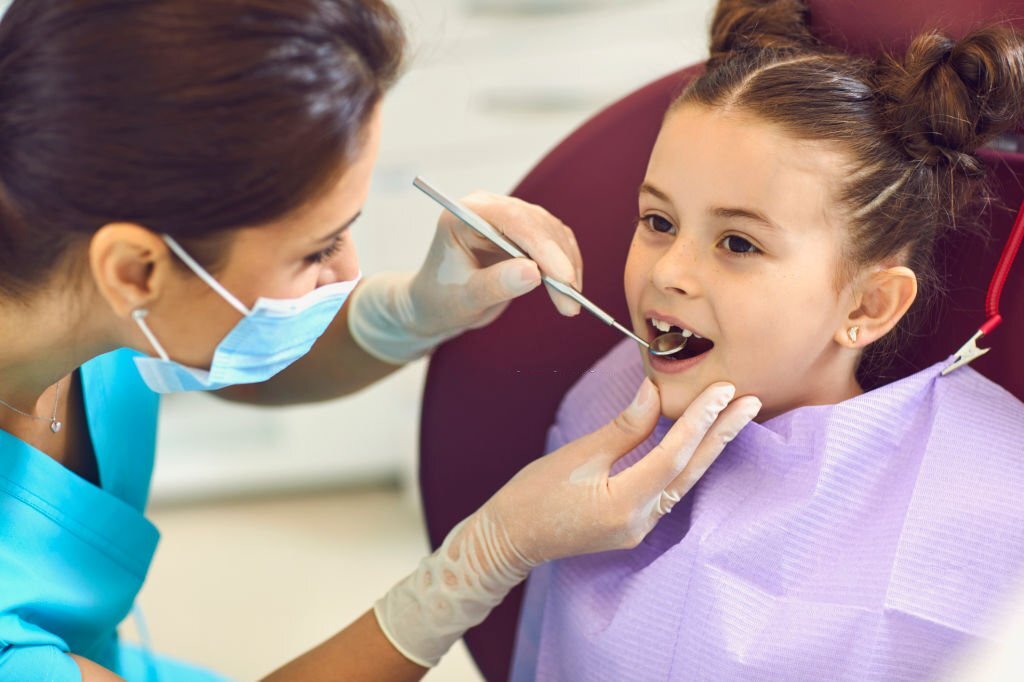Introduction
Diabetes is a chronic metabolic disorder that affects how the body processes glucose, leading to high blood sugar levels. It can have far-reaching effects on various aspects of health, and dental health is no exception. While most people associate diabetes with issues related to blood sugar control and its impact on adult teeth, it is essential to recognize the connection between diabetes and cavities in baby teeth as well. Early childhood caries (ECC), commonly known as baby bottle tooth decay, is a significant concern for children with diabetes. In this blog, we will explore the link between diabetes and the risk of developing cavities in baby teeth, understand the underlying factors, and provide crucial prevention strategies to maintain optimal oral health in children with diabetes.
Early Childhood Caries (ECC): Understanding the Basics
Early Childhood Caries (ECC) refers to the presence of one or more cavities in baby teeth in children aged six or younger. ECC typically occurs when sugary substances, such as milk, formula, or juice, are allowed to linger on the baby’s teeth for extended periods, promoting bacterial growth that leads to tooth decay.
The primary causes of ECC include:
a. Frequent Sugary Feedings:
Frequent consumption of sugary liquids, especially when a baby is put to bed with a bottle, can increase the risk of ECC.
b. Poor Oral Hygiene:
Inadequate or improper oral hygiene practices can allow plaque and bacteria to accumulate on the baby’s teeth, leading to cavities.
c. Lack of Fluoride:
Insufficient fluoride intake or lack of exposure to fluoride can weaken the enamel, making baby teeth more susceptible to decay.

The Connection Between Diabetes and Cavities in Baby Teeth
Children with diabetes face unique challenges when it comes to dental health, including an increased risk of cavities in baby teeth. The connection between diabetes and ECC can be attributed to the following factors:
a. Blood Sugar Control:
Fluctuating blood sugar levels in children with diabetes can create an ideal environment for bacteria to thrive in the mouth. Elevated blood sugar levels provide additional food for bacteria, increasing the production of acids that attack the tooth enamel.
b. Dry Mouth:
Diabetes can cause dry mouth (xerostomia), a condition where the salivary glands do not produce enough saliva. Saliva plays a crucial role in neutralizing acids in the mouth and remineralizing the tooth enamel. A reduced saliva flow can contribute to an increased risk of cavities.
c. Poor Immune Response:
Children with diabetes may have compromised immune systems, making it more challenging for their bodies to fight off infections, including oral infections that can lead to tooth decay.
d. Medications:
Certain medications used to manage diabetes may have side effects that contribute to oral health issues, such as dry mouth or altered taste perception.
Prevention Strategies for Children with Diabetes
Preventing cavities in baby teeth is crucial for maintaining optimal oral health in children with diabetes. Here are some effective strategies to minimize the risk of ECC:
a. Early Dental Visits:
Schedule the baby’s first dental visit as soon as the first tooth erupts or by the age of one. Regular dental check-ups allow the dentist to monitor oral health and provide timely guidance on proper oral hygiene.
b. Brushing and Flossing:
Clean the baby’s gums with a soft, damp cloth after each feeding, even before teeth emerge. Once teeth erupt, brush them gently twice a day using a fluoride toothpaste. As soon as two teeth touch, introduce flossing between them.
c. Avoid Prolonged Bottle Use:
Avoid putting the baby to bed with a bottle containing anything other than water. Prolonged exposure to sugary liquids can increase the risk of cavities.
d. Limit Sugary Foods and Drinks:
Minimize the baby’s exposure to sugary foods and drinks, especially between meals. Encourage healthy snacks such as fruits, vegetables, and cheese.
e. Drink Water:
Encourage the baby to drink water throughout the day, as it helps rinse away food particles and neutralize acids in the mouth.
f. Fluoride Use:
Consult with the dentist or pediatrician about the need for fluoride supplements or the use of fluoridated toothpaste, as appropriate.
g. Manage Blood Sugar Levels:
Work closely with the child’s healthcare provider to maintain stable blood sugar levels through a combination of medication, diet, and exercise.
h. Dental Sealants:
Consider dental sealants on the child’s molars to provide an added layer of protection against cavities.
Dental Care Education for Parents and Caregivers
Educating parents and caregivers about proper dental care for children with diabetes is crucial. Providing them with the necessary information and tools can empower them to take an active role in their child’s oral health. Dental care education should include:
a. Proper Oral Hygiene:
Instruct parents on how to clean their baby’s mouth before teeth erupt and how to brush and floss once teeth emerge.
b. Healthy Diet:
Educate parents about the importance of a balanced diet and the impact of sugary foods and drinks on oral health.
c. Medication Management:
Discuss any diabetes medications that may have implications for oral health, and advise parents on how to manage potential side effects.
d. Regular Dental Check-ups:
Emphasize the importance of regular dental check-ups and establish a dental visit schedule for the child.
e. Oral Health Monitoring:
Encourage parents to monitor the child’s oral health regularly and promptly report any concerns to the dentist.

Creating a Supportive Environment
Children with diabetes may require additional support and encouragement to maintain good oral health habits. Parents, caregivers, and educators can play a significant role in creating a supportive environment that fosters healthy dental practices:
a. Positive Reinforcement:
Praise and reward the child for practicing good oral hygiene habits.
b. Set an Example:
Lead by example and demonstrate good dental care practices in front of the child.
c. Fun Dental Activities:
Engage the child in fun dental activities, such as reading books about oral hygiene or using a timer during brushing to make it enjoyable.
d. Dental Visits as a Positive Experience:
Create a positive association with dental visits by choosing a child-friendly dental office and celebrating successful appointments.
Conclusion
Diabetes presents unique challenges for children, and its impact on oral health should not be overlooked. The link between diabetes and cavities in baby teeth underscores the importance of early intervention and preventive strategies. By implementing proper oral hygiene practices, maintaining stable blood sugar levels, and creating a supportive environment, parents and caregivers can significantly reduce the risk of cavities in children with diabetes. Regular dental check-ups and collaboration between healthcare providers and dental professionals are essential for ensuring the child’s oral health remains a priority in their overall well-being. With consistent care and education, children with diabetes can enjoy healthy smiles and a lifetime of oral health.


